Town Hall on Immigration Special Coverage
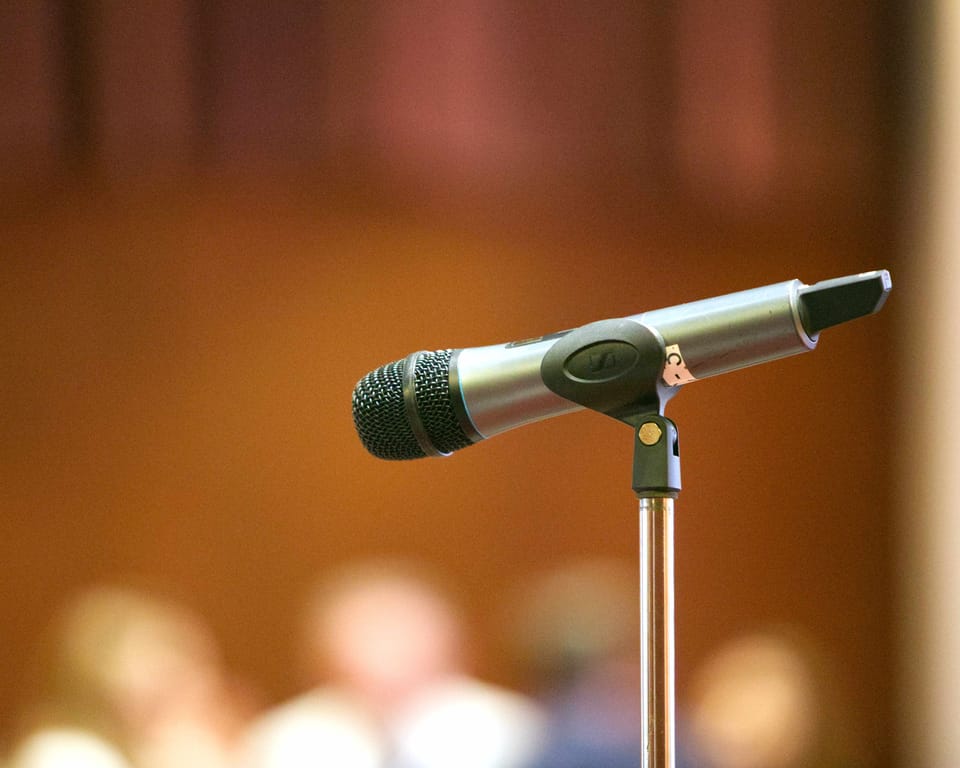
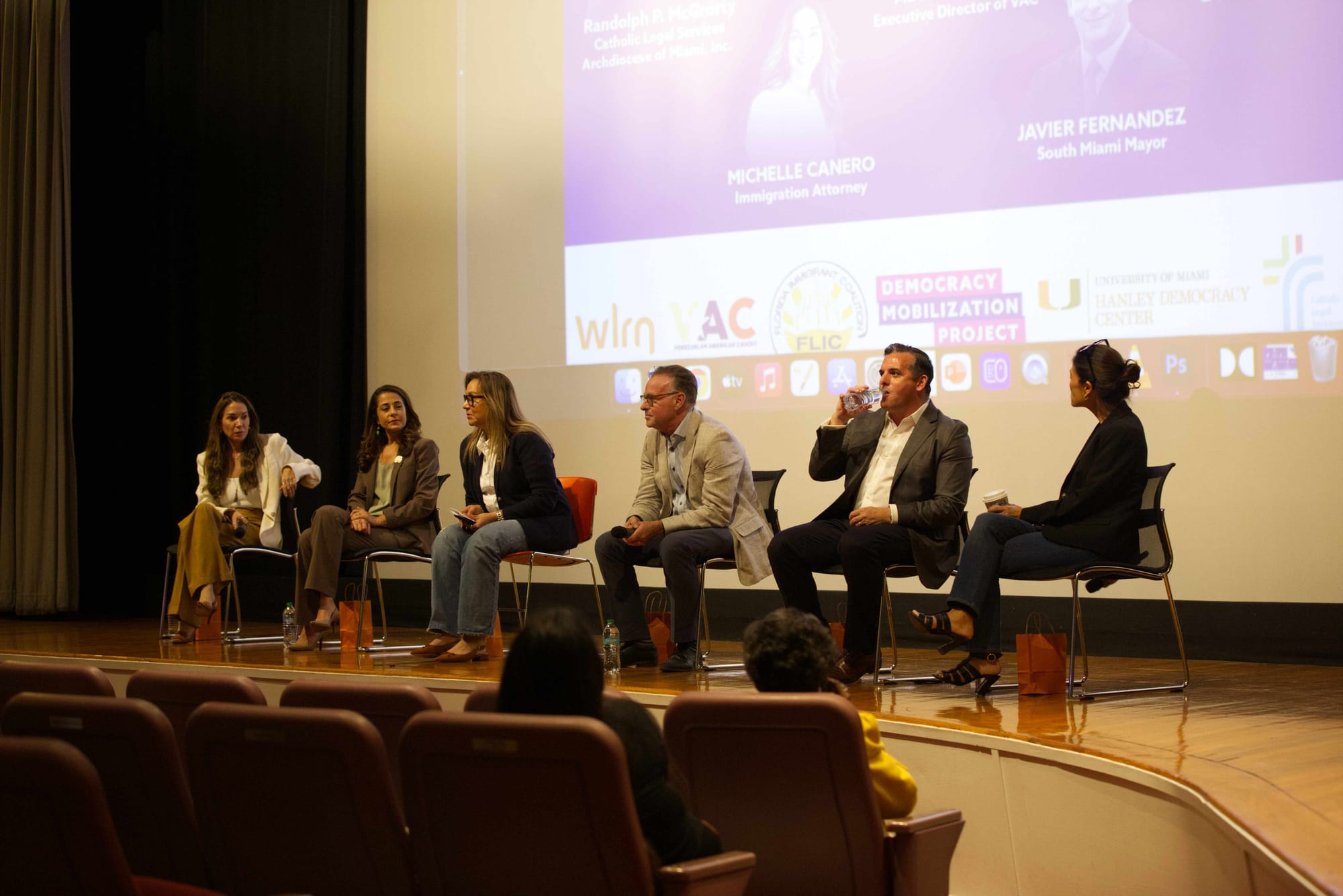
May 9, 2025
CORAL GABLES, FLORIDA The first audience member to speak at the Wednesday night Town Hall on Immigration held at the University of Miami cracked a joke about being a recovering reporter and then broke down sobbing. He never finished what he wanted to say. Others would cry while holding that microphone, including another reporter who spent four years in prison for writing opinion pieces his president didn't like.
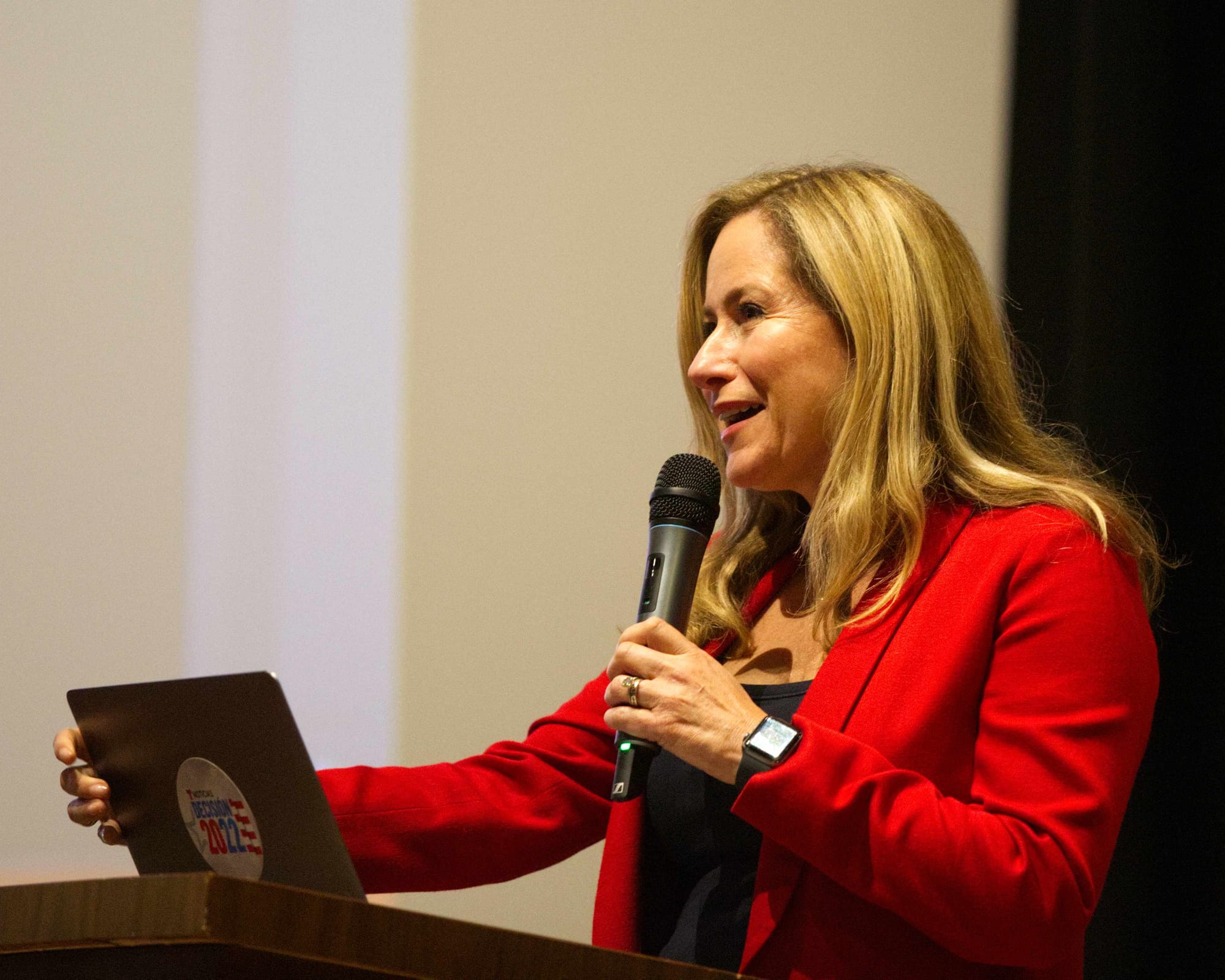
The event, organized by former US House Member from Florida's 26th Congressional District, Debbie Murcarsel-Powell, herself an immigrant and the first South American born person elected to Congresss, was hosted by the University of Miami's Hanley Democracy Center and the Democracy Mobilization Project and drew over 100 community member's to the Coral Gables campus.
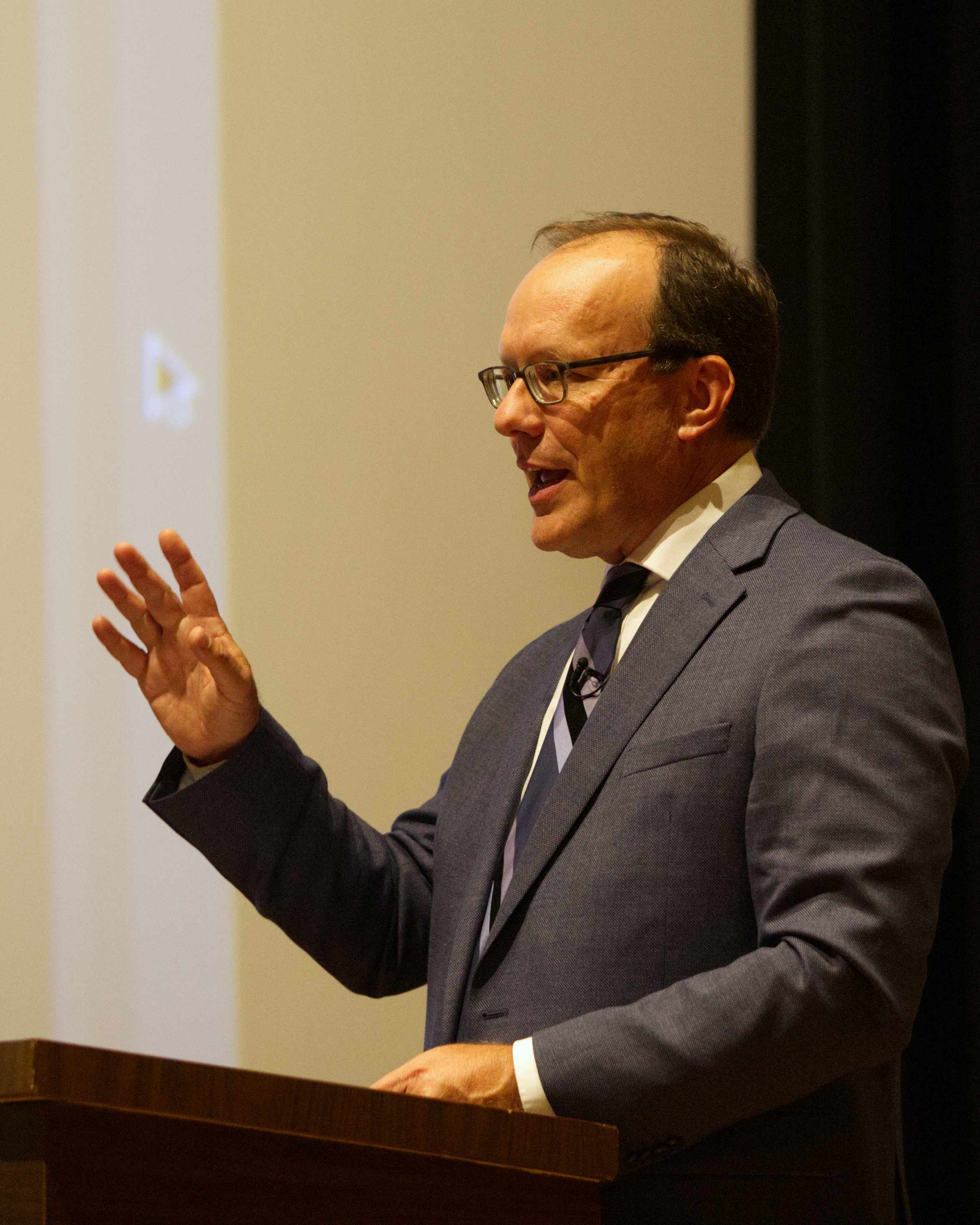
Moderated by NPR's South Florida affiliate WLRN's Tom Hudson, the expert panel included immigration lawyers, the mayor of South Miami and a former MSNBC host, who was recently let go during MSNBC's rightward lurch in February.
While the audience and the panel resonated deeply, the townhall was often emotional as lawyers told stories of deported individuals who were "disappeared" without due process, American citizens caught up in the ICE dragnet, a mayor told of police leaders fearful of arrest if they do not comply with ICE and the Florida Governor and former MSNBC host Katie Phang broke down how her industry is failing the American people by not telling the whole story.
Over half of the 2.7 million people living in Miami-Dade County were born outside of the United States--the highest percentage of any county in the United States, 10 points higher than counties near New York City. Perhaps only climate change is a bigger issue to the residents of the county.
In one of the evenings more telling and shocking moments, immigration attorney Michelle Canero told the audience that a US Passport isn't always adequate proof of citizenship. The statement was so shocking it came up multiple times for confirmation.
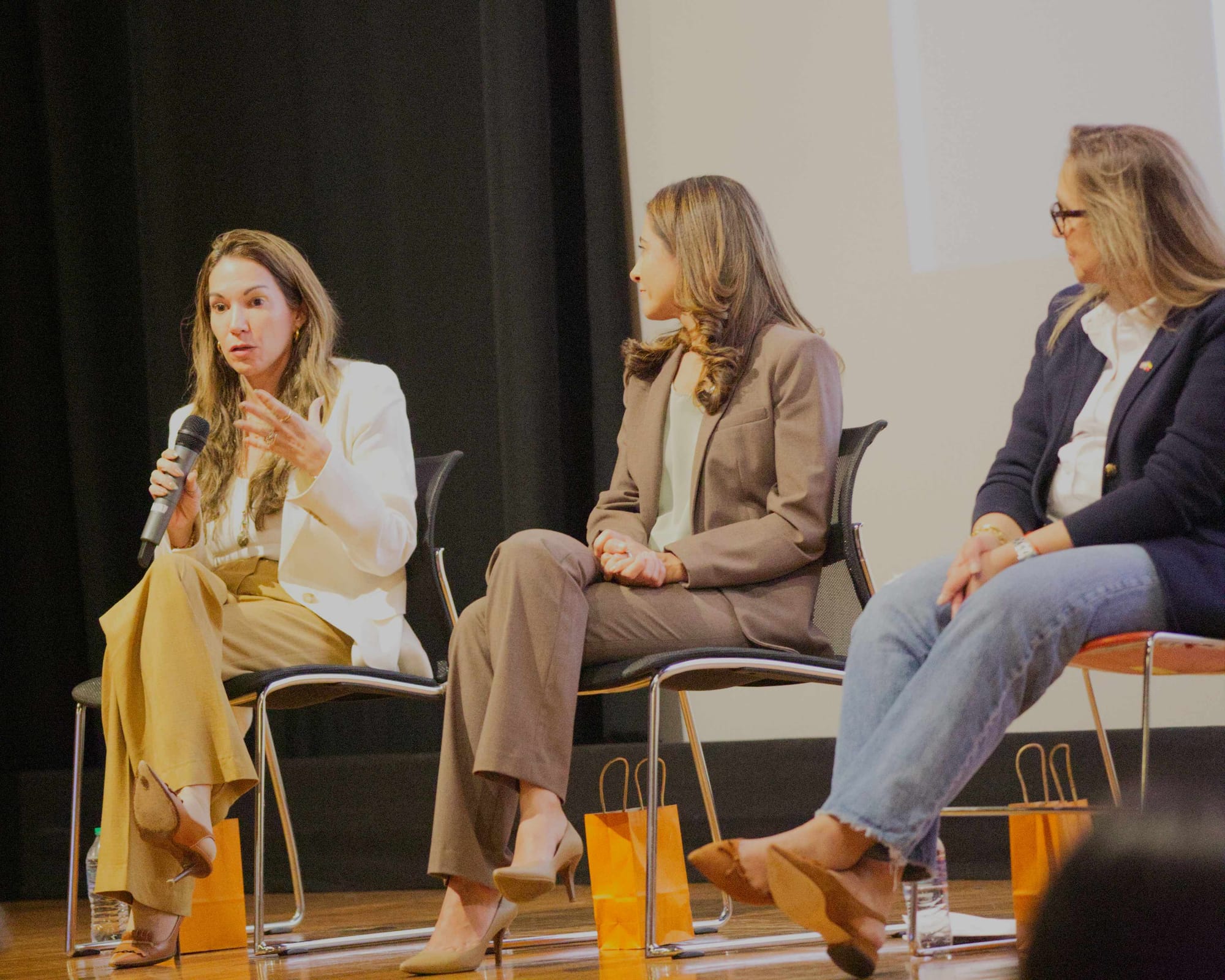
Canero's biggest point was that immigration law is overly complex, even for lawyers--people facing immigration questions need to lawyer up, even if only with lawyers working for free, pro-bono.
Another shocking note made by the attorneys on the panel was that there are 1,000,000 people living in Florida who are eligible to upgrade their Green Cards to US Citizenship, but, for whatever reason, have yet to do so. The attorneys agreed--these people should move fast to get their citizenship and there is help for that process.
While the immigration attorneys presented important context for the audience, South Miami Mayor Javier Fernandez, himself a child of immigrants and the protege of former Miami Mayor Francis Suarez, and Katie Phang elicited the strongest cheers from the audience.
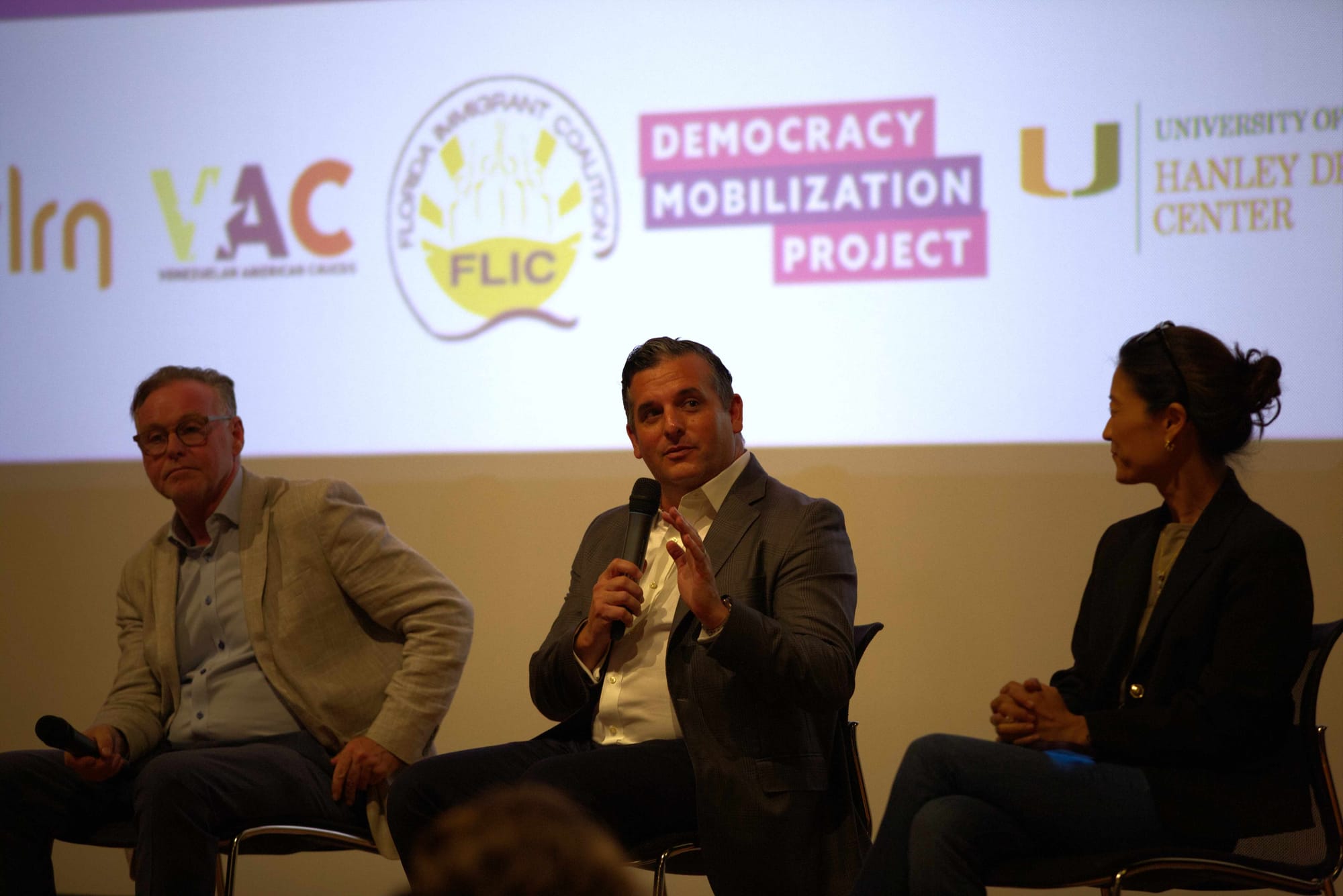
Mayor Fernandez told the audience, "I'm often asked why I'm not a Republican and the answer is immigration."
For his city, the 287(g) agreements that the Florida Attorney General has threatened with arrest if they do not sign on to the "voluntary" agreements, make no sense. As he put it, the agreements open city officials all the way up to the mayor's office to litigation (exposure, as lawyers would put it), while bringing back no tangible benefits to the city. This is why his city is asking a court to rule on whether or not they are obligated to join.

For her part, Phang received multiple rounds of loud applause for her impassioned demand that the press do a better job of covering immigration stories and providing full context for them. For example, while South Florida is home to nearly half of all Venezuelan born US residents, why so many Venezuelan's fled Venezuela is rarely talked about in the news.
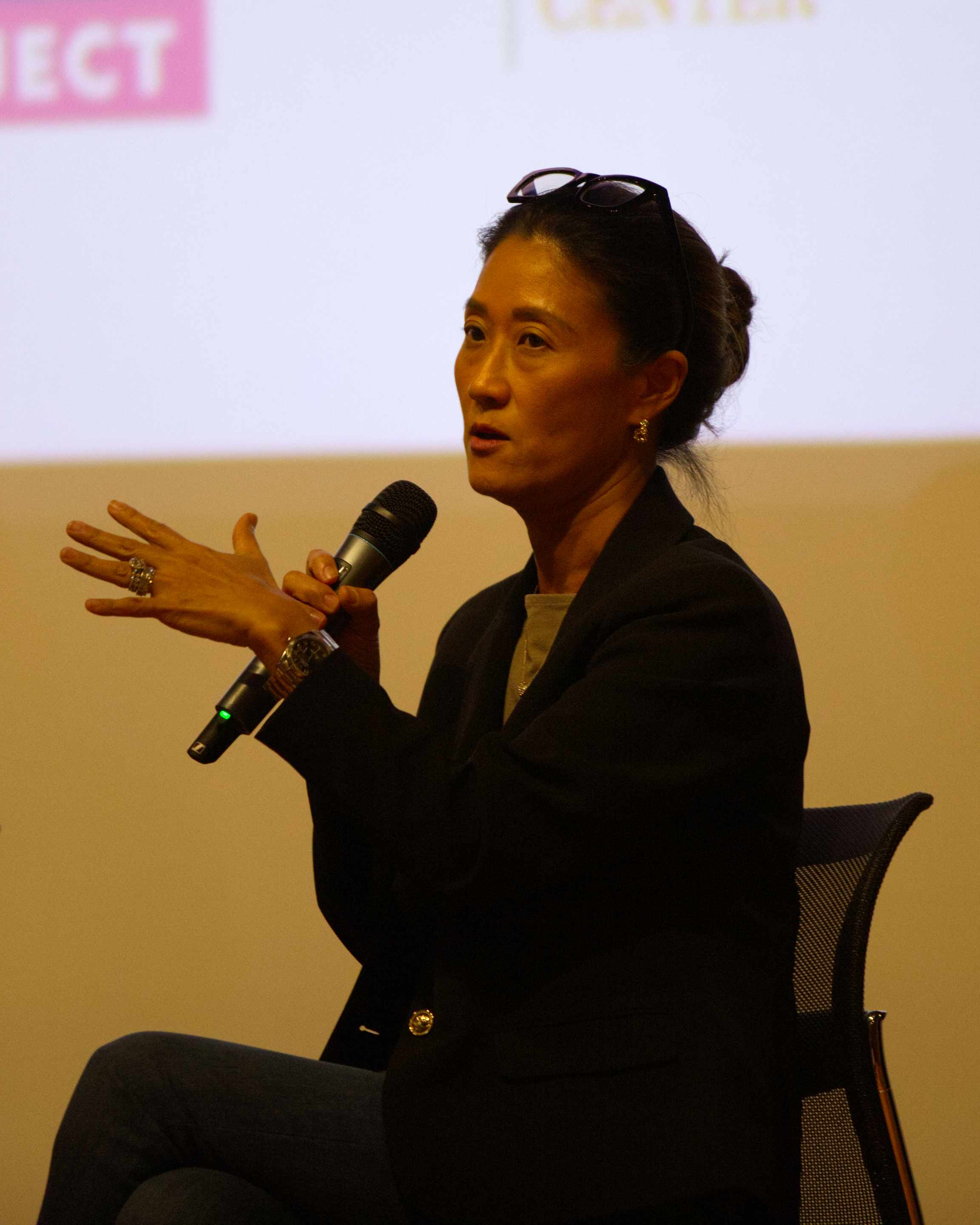
"I will apologize on behalf of mainstream media, even though I'm no longer a part of a particular ecosystem anymore ... I think for the longest time we've done a disservice by not exposing the origins of the problems that have created this urgent integration, right? So the failure of American media to show the true horrors of a lot of these countries and why people are so desperately fleeing to come to the United States has been a disservice because everybody universally agrees that immigration should not be a part of the issue." Phang told the audience.
The former reporter who spent years in prison for writing a story his president didn't like, was likely from Venezuela, though that was not confirmed. That reporter, in tears, told of how his family escaped persecution, breathed a sigh of relief, became US citizens two years ago and now find America is looking more like the "King" running the country of his birth:
"When I came here, I think, oh God, free zone. Wow, no problem. I can sleep and then all start to change and all these things. I are looking here since 10, 12 years ago is exactly exactly what I see in my country. Exactly. This is not a problem of left or right. That's a lie. This is a problem between democracy and the king. That's the problem. That is the really problem."

Another audience member told the panel of how he was a Dreamer and he had friends who had been swept up by ICE but he could no longer track them because ICE's tracking system isn't working.
To this the attorneys agreed that when facing any immigration issues today, people should reach out to an attorney's office. Even if someone is unable to retain the attorney's services, the attorney will note the person and will be able to access better tracking data for them should they be detained.
Immigration Attorney Renata Bozzetto told the audience the best way people can help out if they see ICE detaining someone is to gather as much information as possible--without asking the person being detained any questions other than "Is there anyone I can contact for you?"
Once they have gathered as much information as possible, such as the name of the arresting agents, what agency they work for, when and where the incident took place, etcetera they should go to the website raise.is to report it. The RAISE website is also a place anyone encountering ICE should go.
The panel agreed that while the threat of ICE is real, the point is to make everyone afraid. Phang pointed out that the Right is going after birthright citizenship itself, meaning this is a threat to us all.
Still, the panel encouraged all to stand together and stand up against the fear and intimidation.
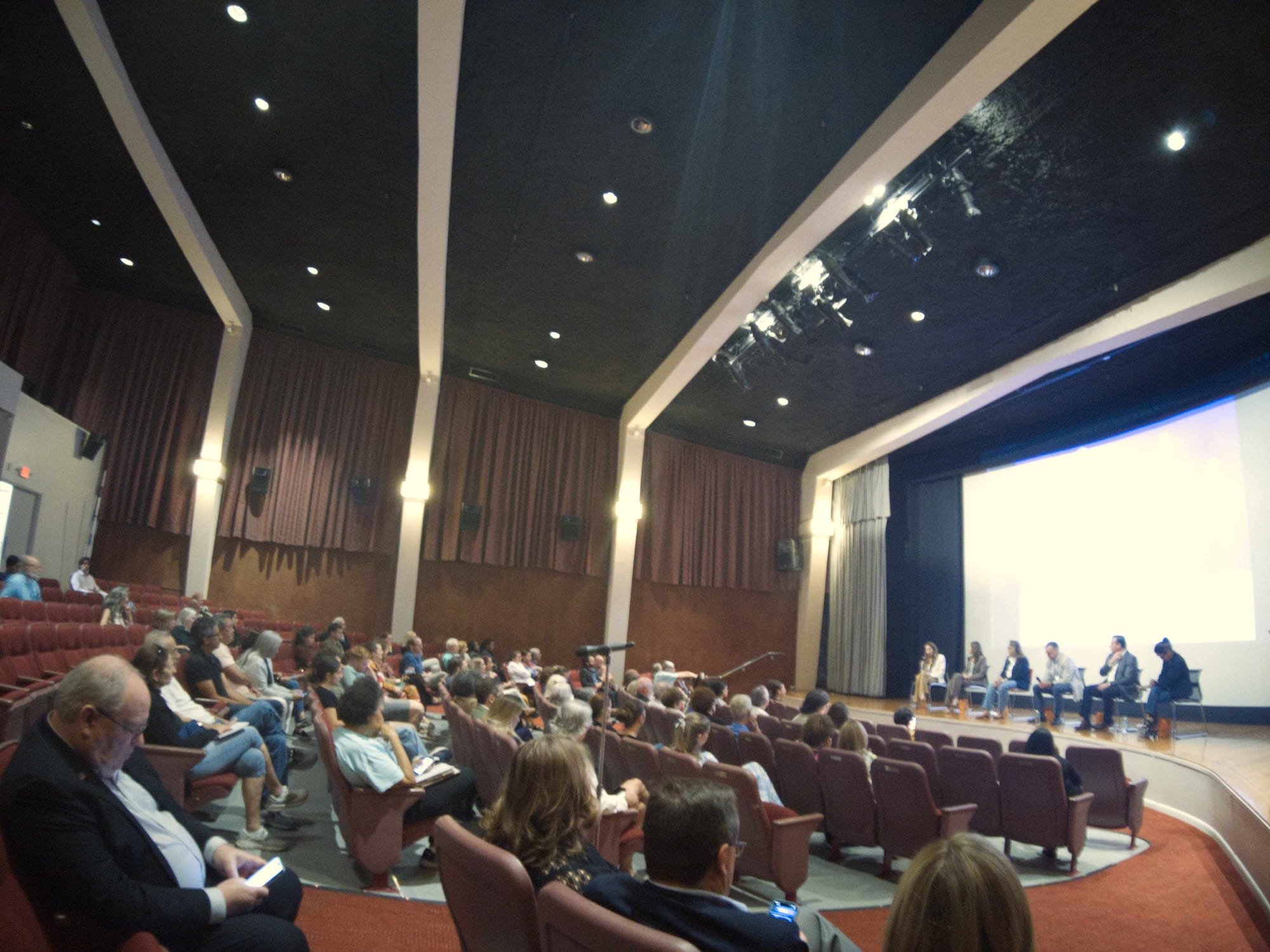
Canero, the first immigration attorney mentioned, when asked by an audience member about how people should protect themselves, told the audience she and her fellow attorneys carry their passports at all times.
"I won't be doing that," the audience member replied exemplifying refusing to live in fear, "That's what it was like in Cuba" and she told the panel she refused to go back to that way of living.
